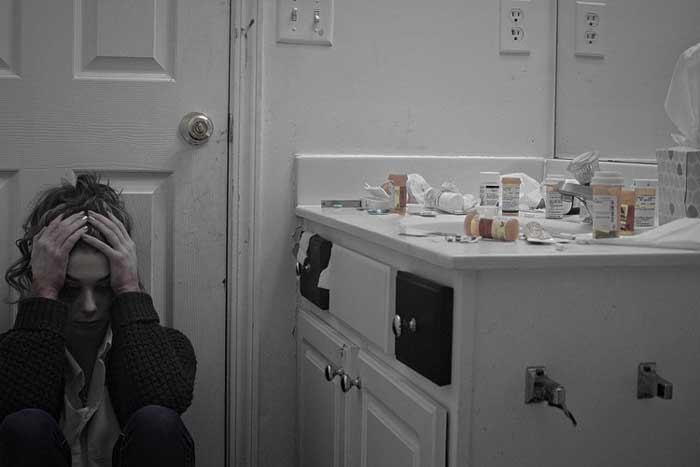There are a number of personality disorders currently known to psychologists. These disorders are characterized as recurring behavioral patterns that are inconsistent with modern cultural norms; they make the afflicted suffer and cause the people around them much inconvenience and suffering, too. These conditions are usually accompanied by constant fear and anxiety.

To these belongs the disorder named avoidant personality disorder. Individuals afflicted with APD, avoidant personality disorder, experience an unavoidable feeling of inadequacy; consequently, they are afraid to be judged by others, sure that the judgment will be condemning. They want to socialize, yet they fear it because other people are likely to rejected them.
APD has been registered with approximately 2.5% of the people, both men and women alike.
Symptoms of avoidant personality disorder
The most common signs displayed by people affected with APD are listed below:
- Unnatural timidity
- Craving to be liked
- Inability to derive pleasure from activities
- Unceasing worry over behaving wrongly
- Social anxiety
- Expectance and overreaction to criticism
- Trying to please people
- Distancing themselves from having close relationships or participating in confidential conversations
- Fear of taking decisions
- Shunning situations where they suspect they could be rejected
- Shunning all social events
- Self-consciousness
- Inability to enter into social contact
- Inadequate self-perception
- Oversensitive reaction to negative assessments
- Unwillingness to assert themselves
- Inclination to exaggerate negative events and problematic situations
- Mistrust of all people
- Self-deprecatory attitude
- Believing neutral events are threatening
- Maintaining no close relationships, having no social network
- Isolating themselves from others
- Reluctance to try new things, suspicion of everything unexpected
- Regarding themselves as clumsy, inferior, and unworthy
Causes of avoidant personality disorder
Psychologists are not yet definite about the origin of avoidant personality disorder. Genetics may be at fault, some kinds of environment could be conducive to the development of the issue.
Environmental influence from early childhood can be highly aggravating. Normally timid young kids, placed in certain circumstances, may not outgrow their timidity, let it linger into adulthood, and end up suffering from avoidant personality disorder. Many APD sufferers reported instances of being rejected by both adults and peers repeatedly, a situation that is detrimental to self-esteem and building up feelings of security and confidence.
Ways to treat avoidant personality disorder
The perspectives for individuals with avoidant personality disorder don’t look so good – these people are inclined not to regard their condition as requiring address and rarely seek treatment. They remain content with their self-isolation and avoid therapy on a par with most other things.
Also, the behavioral patterns that have been serving them for years go very deep and don’t yield to treatment easily. People with this disorder may not think of undergoing treatment until their troubles pile up, life becomes too stressful, or they want to enter into a relationship. It is those weighty considerations that push such people to consult therapists, evolve, and follow treatment plans. Before the wind blows cold, they may turn down the very idea of securing help.

Personality disorders usually call for psychotherapy, and it is also advised for treating avoidant personality disorders. Psychotherapy involves individual counseling designed to alter a person’s interpretation of reality (cognitive therapy) or introduce new ways of behavior (behavioral therapy).
Besides working on improved thinking and behavior patterns, therapy tackles dealing with fears and assisting the person in analyzing and coping with relationship/social difficulties.
In some cases medication can also be recommended, drugs like antidepressants or something alleviating anxiety may be prescribed to assuage anxiety tormenting people with APD.
Avoidant personality disorder people need to improve their lives and should begin with acknowledging the state and recognizing the symptoms. Those who have grasped their particular set of symptoms will be able to get more productive counseling from their therapist providing better collaboration.
To ensure beneficial results, it’s better to combine psychotherapy consulting with medication to alleviate fears and anxieties. It works even better if friends and relatives are willing to help along and render support.
Also included should be self-care. When people are passing through a difficult phase, it is desirable they could avoid resorting for help to alcohol, substances, smoking, or giving in to an obsessive desire to eat all the time.
A technique that could also be of help is schema therapy, being an integrative approach to the issue. Schema therapy is based on CBT but includes a number of various therapeutic techniques. Establishing a therapeutic relationship between psychologist and client, it works toward reforming day-to-day socializing. It allows for the improvement by understanding and altering the perception of childhood experiences thereby acquiring insight for introducing corrections in the lifestyle.
All personality disorders, including avoidant personality disorder, cannot be mended quickly. It’s a step-by-step therapeutic process that cannot be hurried along. Besides, it depends heavily on the client’s willingness to apply and re-invent treatment and agreement to shift to a different outlook on the relationship and socializing. A progressing treatment will help people with avoidant personality disorder build up relationships based on a more realistic attitude to life.











